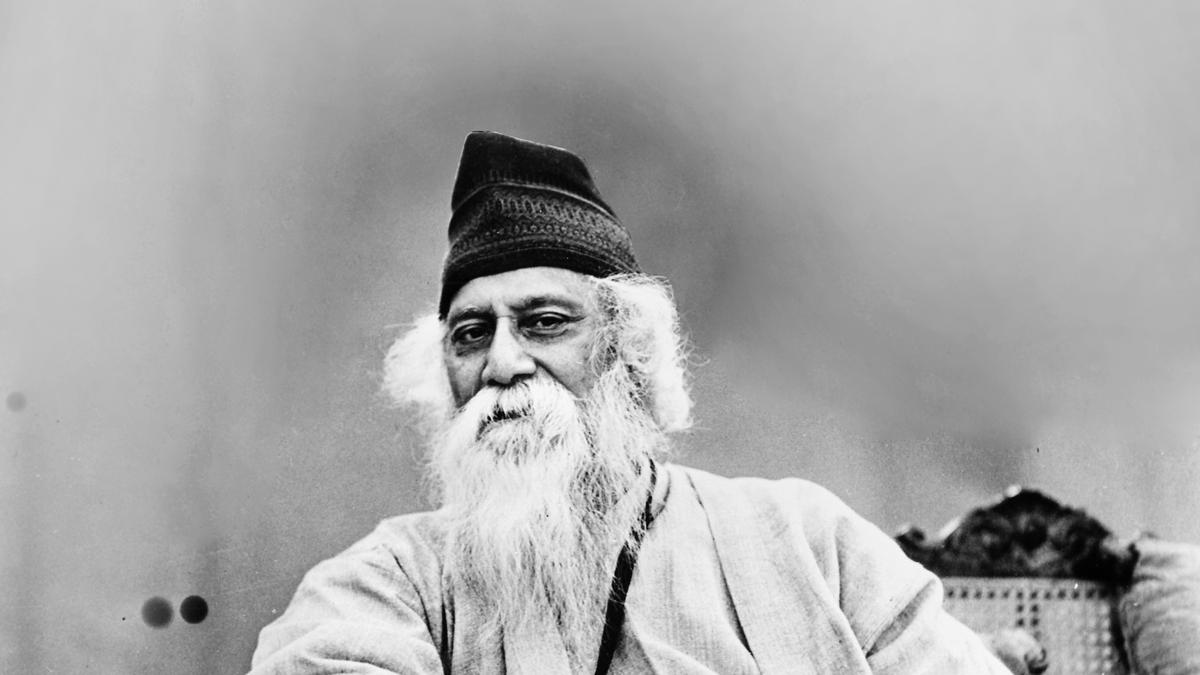
Need Tagore more than ever, say Bengal’s voices on the bard’s birthday
The Hindu
Celebrating Rabindranath Tagore's birthday in Kolkata, reflecting on his political activism and timeless relevance in today's world.
As Bengal prepares to celebrate Rabindranath Tagore’s birthday — which falls on May 8 this year as per the Bengali calendar but is on May 7 according to the English calendar — those who know their Tagore say that the poet is perhaps more relevant today, when one needs to respond to events “without fear”.
“While rejoicing in Tagore’s lyricism, romanticism and spirituality, we often tend to lose sight of the fact that he was an intensely political person; political in the best sense of the term — engaging with the important events of his time and responding to them with energy and without fear,” actor Dhritiman Chaterji told The Hindu.
“Our times are as turbulent as his were. The country is struggling to free itself from a yoke. The yoke may not be foreign but it is real nonetheless. One wonders how Tagore would have responded. Would his have been a voice of protest and of resistance? Perhaps it is that persona of Tagore that we should be celebrating today — of Tagore the activist,” Mr. Chaterji said.
Tagore was born in 1861 on the 25th day of the Bengali month of Baisakh, coinciding this year with May 8. He died in 1941 on the 22nd day of Shravan, which fell on August 7 that year. He won the Nobel Prize for Literature in 1913.
“Nearly a century after he left this world — and the world has changed so much since then — Tagore’s relevance in our everyday life is not only undiminished but growing. And here I am not only talking about his songs and poetry. As our world is being torn apart by toxic nationalistic passions, I think of his lectures on the evils of nationalism. I think of his profound engagement with nature as a climate catastrophe unfolds around us. But in this election season, as the air is rife with lies and counter-lies, I think of his life spent in the pursuit of truth through art and literature,” writer Parimal Bhattacharya, the author of, among other books, Field Notes from a Waterborne Land, said.
Dyutiman Bhattacharya, Superintendent of Police at Cooch Behar, expressed similar thoughts. “Tagore had a deep connection with nature, and his writings often reflect a profound respect for the environment. In the current context of climate change and environmental degradation, Tagore’s emphasis on the interconnectedness of all life forms and the need for sustainable living resonates strongly,” the police officer, who is also an artist, said.
According to writer Amar Mitra, winner of the prestigious O. Henry Award, one should turn to Tagore’s literature to “save the country”. “Tagore’s philosophy was unity in diversity. But India is going away from that. We should remember his poem, Bharat Tirtha, about how Aryans, non-Aryans, Dravidians, Chinese, Pathans, Mughals, all came here and became Indians. Politicians are misinterpreting him. Tagore did not believe in chauvinism,” Mr. Mitra, whose story Gaonburo (translated into English as The Old Man of Kusumpur) got him the coveted award, said.

The girl, who was admitted to Aster CMI Hospital with alarming breathlessness and significant pallor, was diagnosed with Wegener’s Granulomatosis (now known as Granulomatosis with Polyangiitis or GPA), a rare autoimmune condition that causes spontaneous bleeding in the lungs, leading to acute respiratory failure.

ACB files case against IPS officer N. Sanjay in Andhra Pradesh. The official is accused of manipulating the tender processes for awarding contract for development and maintenance of AGNI-NOC portal, and conducting awareness meetings for SC/STs. It is alleged that the total value of properties stolen, or involved in the case is estimated at ₹1,75,86,600.









